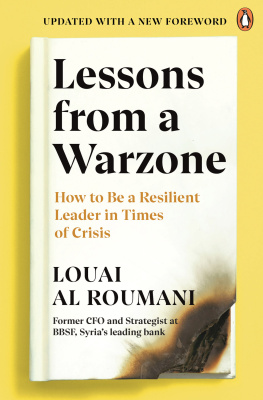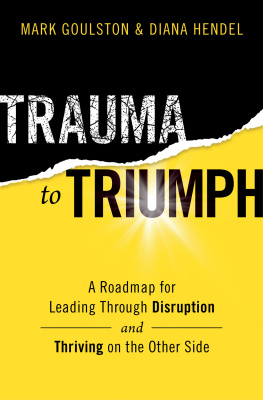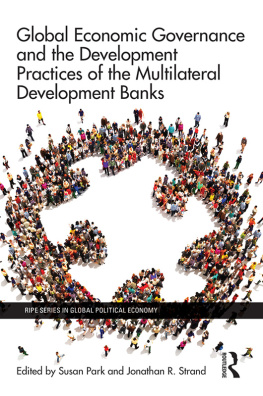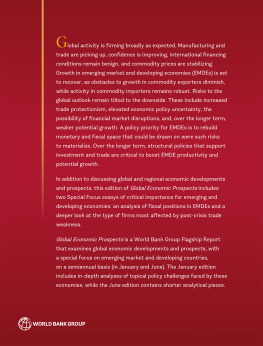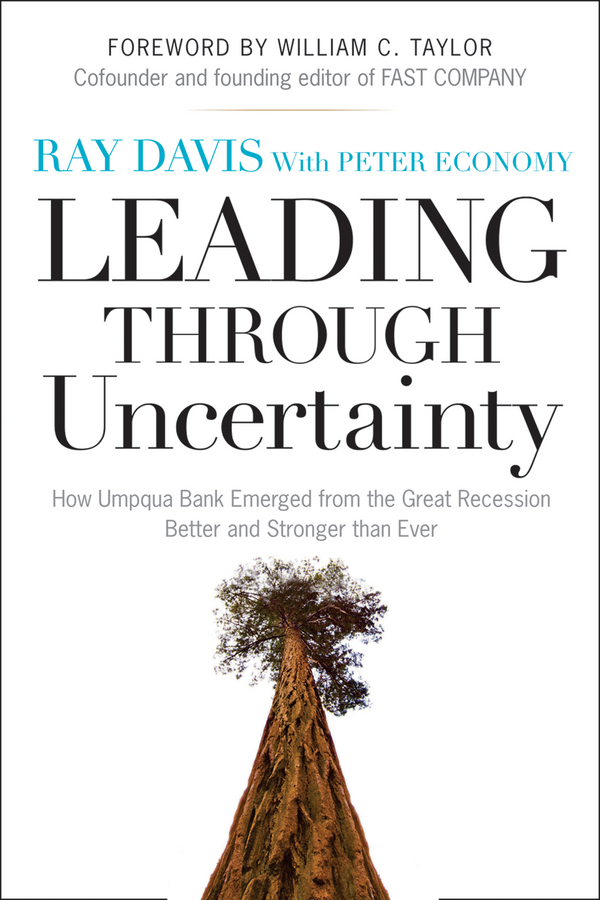Contents

Design concept by Gearbox
Cover photograph by Vito Palmisano | Getty
Copyright 2014 by Ray Davis. All rights reserved.
Published by Jossey-Bass
A Wiley Imprint
One Montgomery Street, Suite 1200, San Francisco, CA 94104-4594 www.josseybass.com
No part of this publication may be reproduced, stored in a retrieval system, or transmitted in any form or by any means, electronic, mechanical, photocopying, recording, scanning, or otherwise, except as permitted under Section 107 or 108 of the 1976 United States Copyright Act, without either the prior written permission of the publisher, or authorization through payment of the appropriate per-copy fee to the Copyright Clearance Center, Inc., 222 Rosewood Drive, Danvers, MA 01923, 978-750-8400, fax 978-646-8600, or on the Web at www.copyright.com . Requests to the publisher for permission should be addressed to the Permissions Department, John Wiley & Sons, Inc., 111 River Street, Hoboken, NJ 07030, 201-748-6011, fax 201-748-6008, or online at www.wiley.com/go/permissions .
Limit of Liability/Disclaimer of Warranty: While the publisher and author have used their best efforts in preparing this book, they make no representations or warranties with respect to the accuracy or completeness of the contents of this book and specifically disclaim any implied warranties of merchantability or fitness for a particular purpose. No warranty may be created or extended by sales representatives or written sales materials. The advice and strategies contained herein may not be suitable for your situation. You should consult with a professional where appropriate. Neither the publisher nor author shall be liable for any loss of profit or any other commercial damages, including but not limited to special, incidental, consequential, or other damages. Readers should be aware that Internet Web sites offered as citations and/or sources for further information may have changed or disappeared between the time this was written and when it is read.
Jossey-Bass books and products are available through most bookstores. To contact Jossey-Bass directly call our Customer Care Department within the U.S. at 800-956-7739, outside the U.S. at 317-572-3986, or fax 317-572-4002.
Wiley publishes in a variety of print and electronic formats and by print-on-demand. Some material included with standard print versions of this book may not be included in e-books or in print-on-demand. If this book refers to media such as a CD or DVD that is not included in the version you purchased, you may download this material at http://booksupport.wiley.com . For more information about Wiley products, visit www.wiley.com .
Library of Congress Cataloging-in-Publication Data
Davis, Ray, date
Leading through uncertainty : how Umpqua Bank emerged from the Great Recession better and stronger than ever / Raymond P. Davis.First edition.
pages cm
Includes index.
ISBN 978-1-118-73302-8 (hardback)ISBN 978-1-118-78257-6 (pdf)ISBN 978-1-118-78260-6 (epub)
1. Umpqua Bank. 2. Community banksOregonPortlandManagement. 3. Banks and bankingOregonPortlandManagement. 4. Leadership. I. Title.
HG2613.P84U473 2014
332.1'609797dc23
2013027869
For the associates of Umpqua Bank.
You lead, you motivate, and you inspire.
Foreword
More than a century ago, Theodore Roosevelt offered a definition of success that has stood the test of time. Far and away the best prize that life offers, he said, is the chance to work hard at work worth doing. By that definition, Ray Davis is one of the most successful business leaders I have ever met. He and his colleagues at Umpqua Bank have worked harder, smarter, and with more passion and authenticity than the leadership of any other bank I knowand, to be honest, just about any organization in any field that I know. And their work is certainly worth doingbuilding a company, a brand, a presence in the marketplace that stands out from the crowd and stands for something special.
Leading Through Uncertainty is Rays second effort to share with the world (with all his trademark modesty) what he and his colleagues have learned during their incredible twenty-year journey of innovation, service, and exceptional financial performance. His first book, Leading for Growth , was published in March 2007, when the banking business, and the world economy as a whole, were riding high and enjoying the tailwinds of housing booms and fast-paced growth. His new book appears at a very different moment in the economy and in the psychology that animates leaders and shapes their outlook. Most companies in most industries, and certainly in the banking industry, are operating in the face of fierce headwindsthe hangover from the worst financial collapse since the Great Depression, frustratingly slow growth in the real economy, a hard-to-shake sense of distrust between customers and the companies with which they do business.
And yet the Ray Davis you will encounter in these pages, the Umpqua Bank that he and his writing colleague, Peter Economy, bring to life, is every bit as confident, every bit as passionate, every bit as daring as was the case during the height of the boom. Thats because even as the world changesas the Internet and social media reinvent the technologies of banking, as financial trends and government policies reshape the environment of bankingRay and his colleagues have remained true to their values, their belief system, their distinctive point of view about what their company could be and the role it could play in their customers lives.
In a book filled with powerful insights, pragmatic takeaways, and colorful stories, this to me is Rays ultimate lesson, and one that applies in good times and tough times. He understands, as few other CEOs do, that we are living today through the Age of Disruption. You cant do big things anymore, as a company or a leader, if you are content with doing things a little better than everybody else, or a little differently from how you did them in the past. In an era of hypercompetition and nonstop dislocation, the only way to stand out from the crowd is to stand for something special. Originality has become the acid test of every companys strategy.
The term I like to use is strategy as advocacy and Ray and his colleagues are persuasive advocates for their approach to strategy. They understand that the most successful companies dont just offer competitive products and services. They champion compelling ideasideas that shape the competitive landscape of their field, ideas that reshape the sense of whats possible for customers, for colleagues, for investors. As I look at companies that are winning big in difficult circumstances, I see that a richly defined values proposition beats a dollars-and-cents value proposition every time.
To be sure, no one will mistake Umpqua Bank for one of the financial services juggernauts headquartered in New York or Hong Kong, and no one will mistake Ray himself for a Master of the Universe or a Titan of Finance. And thats the beauty of this book. Rays insights and messages are worth reckoning with not because of the size of his banks balance sheet (although all those billions of dollars of assets are beginning to add up), but because of the power of his ideas and their relevance to many leaders running companies in many different industries.
For a long time, we lived in a world where the strong took from the weak. If you had the most established brand, the widest global reach, the deepest pockets, you won almost automatically. That world is over. The new logic of success is that the smart take from the strong. The most successful companies I have gotten to know dont just try to outcompete their rivals. They aspire to redefine the terms of competition in their field by embracing one-of-a-kind ideas in a world filled with me-too, copycat thinking. In Rays memorable words, these companies find the revolution before the revolution finds them.


